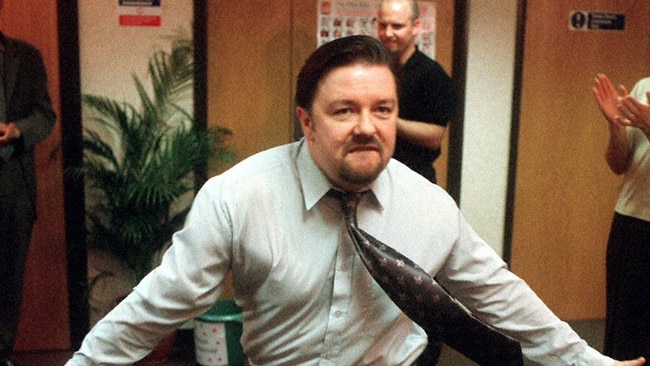Toxic workplace survival tips from Bond University expert
The return to in-person work post pandemic means wading back into a toxic soup of bad behaviour and difficult personalities – here are five expert tips for how to handle it.
Opinion
Don't miss out on the headlines from Opinion. Followed categories will be added to My News.
Heading back to the office? Here’s how to handle a toxic workplace.
While we know it’s unlikely the boss is a psychopath, for some, the return to in-person work post pandemic means wading back into a toxic soup of bad behaviour and difficult personalities.
The shift to remote work didn’t diminish bullying and bad behaviours altogether – bullies will always find a way – but there can be a sense of safety from behind a screen.

Surveys taken during the height of lockdowns showed workplace toxicity and bullying were still present for many workers, but being removed from the physical environment was a helpful tool to manage stressful situations.
Now, with workplaces urging or requiring staff to return to the office, at least for part of the working week, staff already dealing with toxic colleagues will likely be feeling the added stress of coming face-to-face with their bullies once again.
Because of the way we are socialised to be “nice”, most people struggle to deal with the raw hostility that can come from confrontations with workplace bullies and the thought of managing those difficult interactions on a day-to-day basis can create serious anxiety.
Changing jobs to avoid toxic colleagues simply isn’t an option for a lot of people, so here are my top tips for managing the return to a difficult office environment.
1. TRY NOT TO OVERTHINK IT

I’ve spoken to many people who would spend sleepless nights imagining the conversations with difficult colleagues, what they are going to say and how the interaction will go.
These conversations rarely go the way we think they will – it’s the nature of dealing with bullies and narcissists – so spending hours rehearsing conversations in their heads can have a really negative impact on their own mental health.
2. SEEK HELP WITH SETTING BOUNDARIES
It might be worth considering talking to a psychologist or a business coach who can provide help and support with setting boundaries and managing communication with difficult people.
Even with the best of intentions to be more assertive and manage difficult colleagues differently, their extreme behaviours can easily derail situations. Accessing some professional help to develop strategies might increase the chances of success, or at the very least reduce anxiety levels and boost confidence.
3. TRY TO NEGOTIATE SOME FLEXIBILITY
If the workplace is seeking a return to the office full time, it might be worth seeking further flexibility to continue working from home, at least for part of the week.
Even just having one or two days from home can help diffuse the anxiety that someone might be feeling by minimising the contact with the person they have in the workplace.
4. KEEP GOOD RECORDS, SEEK SUPPORT
In many cases, there is simply no avoiding difficult interactions with toxic co-workers. In these instances it is really important to document interactions, and seek support and witnesses where possible. If you know a potentially challenging conversation is coming up, such as a performance review, it may be helpful to have the conversation facilitated by human resources.
This isn’t always possible for day-to-day interactions, so it is worth trying to manage those through having them take place with witnesses present and by keeping careful documentation.
5. DISCUSS YOUR OPTIONS WITH A HEALTH PROFESSIONAL
If the idea of returning in person is simply too much, or if previous attempts to manage the situation have failed, a WorkCover claim may be an option, particularly in cases where there is a history of bullying. Seeking an assessment and advice from a medical professional, such as a General Practitioner, is a good place to start, if this feels like the only option to manage any return-to-work anxiety.
Dr Katarina Fritzon is an Associate Professor of Psychology with the Bond University Faculty of Society and Design.




